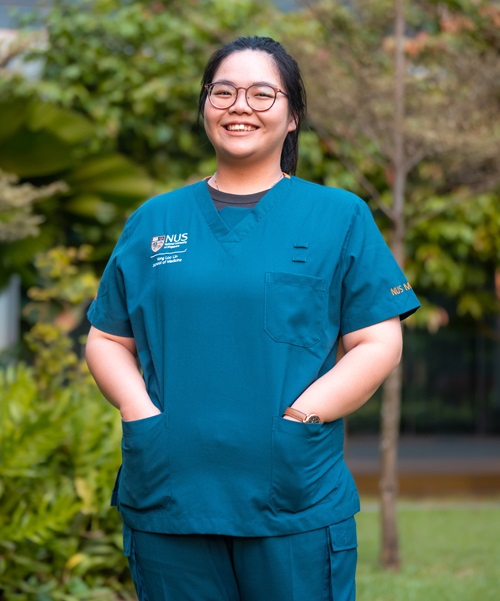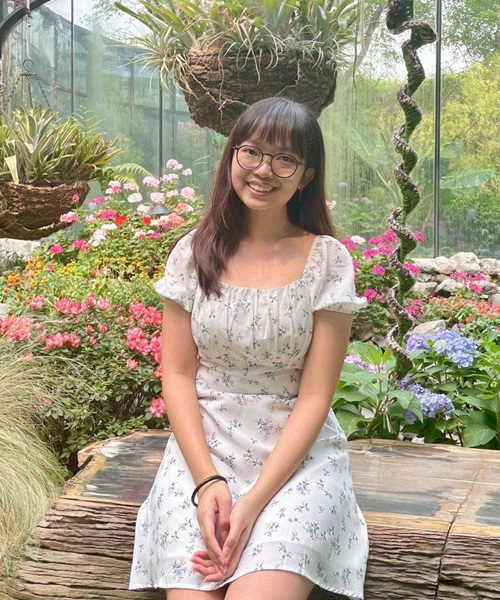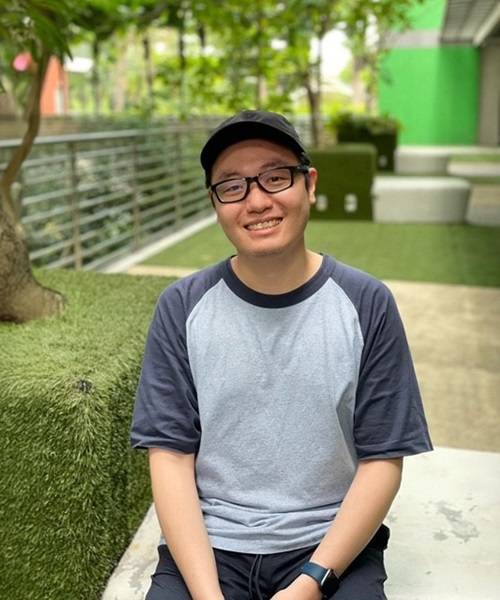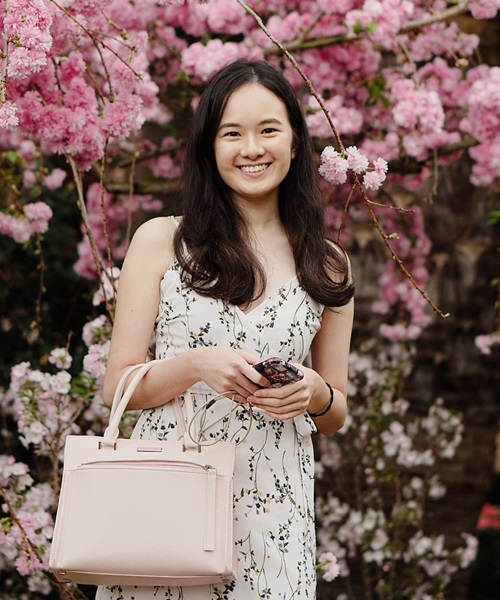Why NSG?
- Hone your skills with 480 hours of hands-on practice – the most in a local nursing diploma course – in state-of-the-art nursing and simulation labs
- Gain real-world experience with 32 weeks of clinical training starting as early at Year 1, along with overseas immersion opportunities to Thailand, China, the Philippines, and Australia
- Deepen your knowledge with electives in Digital Health, Evidence-based Nursing and Patient Management in Chronic Diseases
- With the highest uni progression rate among nursing diplomas, look forward to pursuing degrees in Nursing, Medicine or Allied Healthcare at NUS, NTU and SIT!
About NSG
The Diploma in Nursing (NSG) is a comprehensive
course that prepares you to become a versatile
healthcare professional. You will learn how to manage
medical conditions and get trained to make critical
decisions that impact lives.
Throughout your three years of study, receive 480 hours of hands-on training in our state-of-the-art nursing and simulation labs. You will also learn from industry experts and gain valuable healthcare insights through 32 weeks of clinical training across various specialties, starting from the first year.
Engage with immersive digital learning technologies such as Artificial Intelligence, Virtual Reality, Virtual Reality, robotics, and telehealth simulations. Tools like AI Marker for patient assessments and AI Tutor for personalised learning will sharpen your clinical judgment and decision-making. Also, explore how wearables and digital platforms are transforming patient care to build digital capabilities for a tech-enabled future.
Hone your skills in industry-standard facilities such as our Nursing and Simulation labs, complete with mannequins that can interact with you like a real patient. Other facilities include well-equipped operating theatres, intensive and emergency care units, nursing laboratories and smart classrooms.
Expand your world view and develop the skills to thrive in the global healthcare system through overseas immersion and Service-Learning trips to countries like Thailand, China, the Philippines, and Australia.
| Service-Learning Yogyakarta, Indonesia | Overseas Immersion to Wuhan, China |
Upon graduation, you can work as a registered nurse
or explore career opportunities in the healthcare,
pharmaceutical and biomedical industries, both
locally and abroad. NSG also prepares you for further
studies at local and international universities.
Industry-Relevant Learning
With nine different postings in government and private healthcare settings, you will gain real-world experience for a career head start. Interested in further studies? These hands-on experiences will help you choose your specialisation.
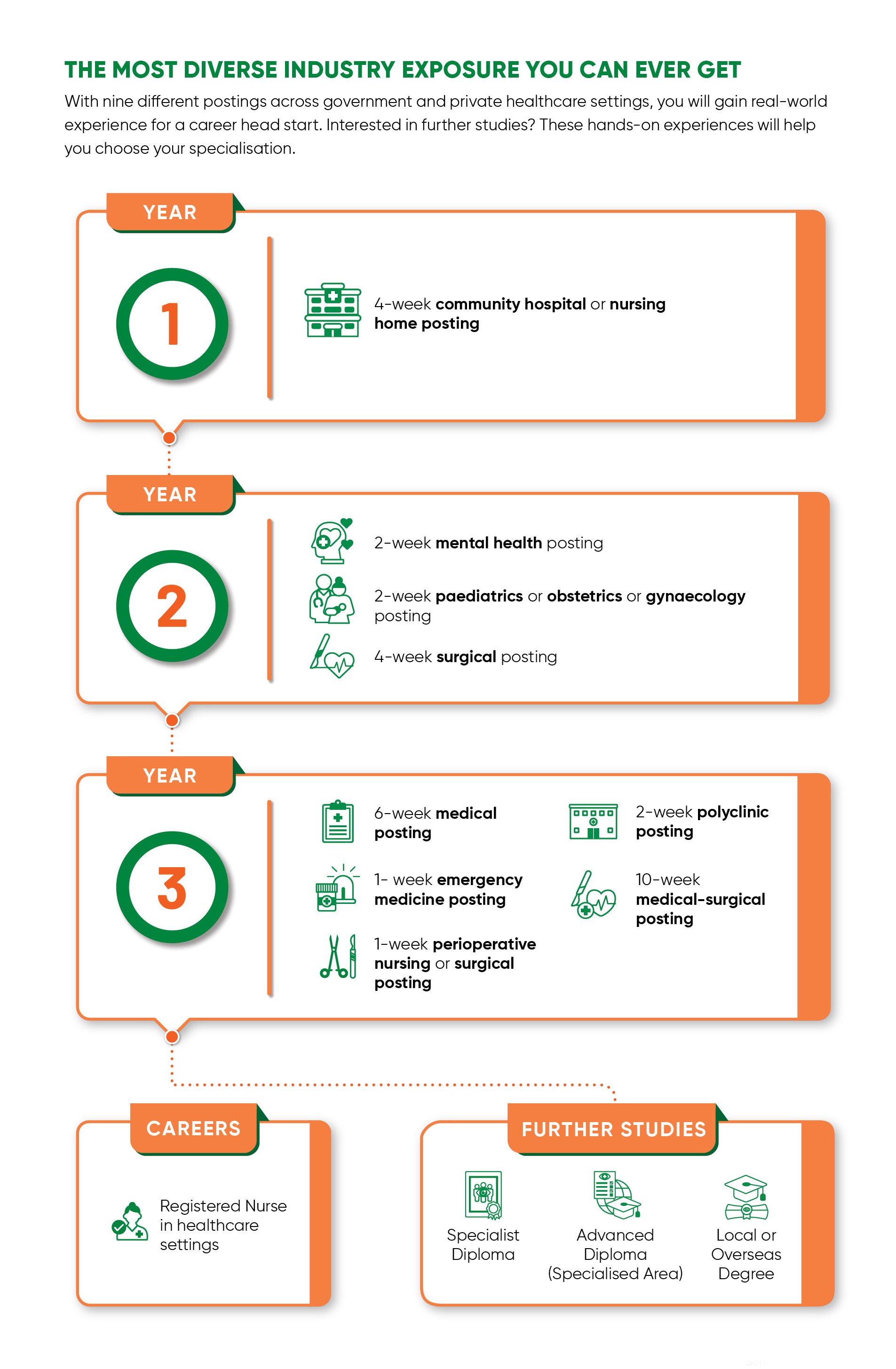
Further Studies
Your diploma will open doors for you to pursue degrees
in various fields at top universities, both locally and
abroad.
For example, 11 NSG graduates have been admitted
to the prestigious Yong Loo Lin School of Medicine
at the National University of Singapore (NUS) since
2022. In addition, many nursing graduates have been
accepted directly into the second year of the nursing
degree programme at NUS. Our graduates have also
pursued degrees in arts, social sciences, psychology,
law, biological and life sciences, and more.
You can also gain admission to the Bachelor of Science
(Nursing) with Honours programme, jointly offered by
the Singapore Institute of Technology and University of
Glasgow. Co-created and designed with inputs from
the industry and the Ministry of Health, the programme
is accredited by the Singapore Nursing Board.
As a professional nurse, you can advance your skills
in a specialised field through an Advanced Diploma
in fields such as Perioperative Nursing, Critical Care
Nursing and Palliative Care Nursing.
Careers
Upon graduation, become a Singapore Nursing Board-registered nurse to practise in both government and private healthcare settings.
Entry Requirements
AGGREGATE TYPE ELR2B2-C
To be eligible for consideration, candidates must have the following GCE ‘O’ Level examination (or equivalent) results.
| Subject | 'O' Level Grade |
|---|---|
| English Language | 1-7 |
| Additional Mathematics/Mathematics | 1-6 |
| Any one of the following subjects: Biology Biotechnology Chemistry Food & Nutrition / Nutrition & Food Science Physics Science (Chemistry, Biology) Science (Physics, Biology) Science (Physics, Chemistry) | 1-6 |
Applicants must also fulfil the aggregate computation requirements for the ELR2B2-C Aggregate Type (English Language, 2 relevant subjects and 2 other best subjects) listed at www.np.edu.sg/docs/ELR2B2.pdf.
Before applying, please review your fitness eligibility through the Pre-Admission Medical Examination, which covers vaccination requirements and the Fitness to Practice Advisory. This helps ensure all students are ready to provide safe, effective care. If you have a health condition that may affect your mental, cognitive, physical, auditory, or visual abilities and could impact your ability to perform patient care safely and effectively, please contact us at contact_HS@np.edu.sg for further guidance and assistance.
What You Will Learn
Fundamentals of Nursing (4 Credit Units)
This module traces the development of nursing from the Florence Nightingale era, to contemporary nursing practice globally and in Singapore. Students are introduced to concepts and theories in professional nursing practice. The Nursing Process framework
in development of care plans will be introduced. Students will also be presented with key concepts of clinical reasoning, critical thinking and problem-solving in making clinical decisions.
Behavioural Sciences (3 Credit Units)
This module provides students with the foundational knowledge of the behavioural sciences to understand its role in nursing and healthcare in general. The module focuses on the application of behavioural sciences when nursing a child, adolescent, adult,
or senior adult. Students will develop perspective-taking skill and apply in their nursing practice with patients. The module will also enable students to understand how individual and social factors can affect and influence their individual nursing
practice, as well as patients’ own perspective and experience with regards to health and illness.
Nursing Skills Laboratory 1.1 (6 Credit Units)
This module aims to equip students with knowledge and skills to care for patient’s basic health needs at entry level. These are essential skills, fundamental to nursing practice and can be applied across a variety of health care settings.
Human Biosciences 1.1 (4 Credit Units)
This module provides students with an understanding of the biological basis of human diseases. It will introduce the cell, cellular organisation and organ systems. It will also provide students with knowledge of anatomy and physiology of the musculoskeletal,
cardiovascular, respiratory, gastro-intestinal, renal and urinary, haematology, and immune systems.
English Language Express* (Credit Units - NA)
English Language Express aims to give you a better grounding in the English Language and to strengthen the written and oral communications skills that you will need in your academic and professional careers. You will be engaged in writing, reading,
listening and speaking activities that will develop your ability to speak and write grammatically, coherently and clearly. You will also hone your reading and listening comprehension skills.
Innovation Made Possible^ (3 Credit Units)
Underpinned by the Design Thinking framework, Innovation Made Possible aims to build creative confidence in students. The module will sensitize students to the process of user-centric problem solving and allow students to discover and hone their innate ability to think creatively, come up with innovations to tackle problems and explore new ideas for their studies and beyond.
^ Critical Core modules account for 10 credit units of the diploma curriculum. They include modules in innovation and world issues, as well as an interdisciplinary project. By bringing students from diverse diplomas together, the interdisciplinary project fosters collaboration to explore and propose solutions for real-world problems. NP aims to develop students to be agile and self-directed learners, ready for the future workplace.
Gerontology & Community Nursing (3 Credit Units)
This module involves the systematic examination and application of nursing care of the elderly. The role of the community nurse will also be explored. In addition, the students will acquire the knowledge and skills to employ the nursing process to plan
illness/disease preventive strategies for the individuals, families and the community at large. Students are encouraged to develop a reflective approach to nursing practice in caring for the elderly in various health care settings.
Introduction to Pharmacology (2 Credit Units)
This module serves as an introduction to the science of medicines and medication management. The principles for safe drug administration and use of the nursing process framework to avoid drug errors will be emphasised. This module will provide the theoretical
framework for better understanding of drugs used in the integrated nursing sciences modules.
Nursing Skills Laboratory 1.2 (6 Credit Units)
This module involves the systematic examination and application of nursing care of the elderly. The role of the community nurse will also be explored. In addition, the students will acquire the knowledge and skills to employ the nursing process to plan
illness/disease preventive strategies for the individuals, families and the community at large. Students are encouraged to develop a reflective approach to nursing practice in caring for the elderly in various health care settings.
Human Biosciences 1.2 (4 Credit Units)
This module will provide students with knowledge and understanding of the anatomy and physiology of the nervous, reproductive, sensory, integumentary and endocrine systems of the human body. It will also introduce the basic principles of microbiology
and principles of infection control.
Clinical Practice 1.2 (4 Credit Units)
This module allows students to practise nursing care to meet patients’ basic health needs at a beginner’s level. Students will have opportunities to apply the knowledge and skills learnt at levels 1.1 and 1.2 into clinical practice in a variety
of healthcare settings where older people are cared for. They will be assigned to gerontology discipline at the various Intermediate and Long-Term Care institutions for four weeks.
Confident Communication: Find Your Voice (VOICE)^ (3 Credit Units)
The VOICE module aims to empower students to become thoughtful and confident communicators able to tailor a message to suit audience, purpose and context. Students will learn how to use storytelling structures and techniques, persuasive strategies and effective visuals to connect meaningfully with their audience. Through a personalised growth plan, the module encourages students to reflect, set goals and take ownership of their growth and development as communicators. The module employs engaging teaching strategies such as games, thinking routines, masterclasses and workshops, and a celebratory showcase festival at the end to make learning fun and exciting.
Health & Wellness (1 Credit Unit)
This is a Level 1 Core module for all Year 1 students. The module will introduce students to the importance of maintaining both physical and mental health through the knowledge and monitoring of health indicators, and application through appropriate exercises. The aim of the module is to empower students with basic knowledge and skills to be independent and responsible in maintaining overall personal health.
^ Critical Core modules account for 10 credit units of the diploma curriculum. They include modules in innovation and world issues, as well as an interdisciplinary project. By bringing students from diverse diplomas together, the interdisciplinary project fosters collaboration to explore and propose solutions for real-world problems. NP aims to develop students to be agile and self-directed learners, ready for the future workplace.
Nursing Skills Laboratory 2.1 (6 Credit Units)
This module aims to equip students with fundamental nursing knowledge and skills to provide preventive, therapeutic and rehabilitative care in meeting patients’ health needs. These developmental skills are necessary to enable students to implement
timely interventions and treatment plans in caring for patients with common medical-surgical disorders.
Integrated Nursing Sciences 2.1 (6 Credit Units)
This module will be taught using a system and scenario-based interdisciplinary approach. It will provide an integrated coverage of pathophysiology, medical and nursing care management, and pharmacological treatment of common cardiovascular, respiratory,
gastrointestinal, renal and urinary, hepatobiliary, vascular and musculoskeletal disorders.
Clinical Practice 2.1 (4 Credit Units)
This module allows students to provide preventive, therapeutic and rehabilitative care in meeting patients’ health needs. Students will have opportunities to apply the knowledge and skills learnt at levels 1.1, 1.2 and 2.1 into clinical practice
in various healthcare settings. They will be assigned to surgical disciplines for four weeks.
Introduction to Nursing Research (3 Credit Units)
This module introduces the basic concepts and skills in research and statistical analysis so that students understand, and critically evaluate evidence and data to support their clinical practice. Topics will include research design, data collection methods,
literature searching strategies, basic statistical analysis and Good Clinical Practice guidelines.
Law, Ethics & Health Care (2 Credit Units)
This module involves the systematic examination and application of the laws that govern nursing practice, explore ethical principles and moral standards of conduct. Topics include the legal system in Singapore, the legislative framework, the role of the
SNB and its regulatory functions; the SNB Code for Nurses and Midwives and ethical decision- making process which have an implication on nursing practice.
World
Issues: A Singapore Perspective^ (2 Credit Units)
This module allows students to explore the impact of social inequality on individuals using concepts from the behavioural sciences. The students will analyse case studies from current affairs and global examples to understand how access to healthcare
can be compromised by certain social factors. The module uses the case study and problem-based approaches using the analyses of social injustices to get students to understand the social and healthcare consequences of their undetected prejudice.
^ Critical Core modules account for 10 credit units of the diploma curriculum. They include modules in innovation and world issues, as well as an interdisciplinary project. By bringing students from diverse diplomas together, the interdisciplinary project fosters collaboration to explore and propose solutions for real-world problems. NP aims to develop students to be agile and self-directed learners, ready for the future workplace.
Nursing Skills Laboratory 2.2 (6 Credit Units)
This module aims to equip students with fundamental nursing knowledge and skills to provide preventive, therapeutic and rehabilitative care in meeting patients’ health needs. These skills are necessary to enable students to implement timely interventions
and care plans in caring for patients with common medical, obstetric and gynaecological, paediatric and mental health disorders. It also prepares students to perform Basic cardiac life support (BCLS) and automated external defibrillator (AED) according
to the guidelines stipulated by the National Resuscitation Council. Singapore.
Integrated Nursing Sciences 2.2 (6 Credit Units)
This module will provide students with an integrated coverage of pathophysiology, medical and nursing care management, and pharmacological treatment of common neurological, hematologic, endocrine, immunological, integumentary and sensory disorders.
Clinical Practice 2.2 (4 Credit Units)
This module allows students to provide preventive, therapeutic and rehabilitative care in meeting patients’ health needs. Students will have opportunities to apply the knowledge and skills learnt at levels 1.1, 1.2 and 2.2 into clinical practice
in specialised healthcare settings. They will be assigned to the mental health discipline for two weeks; paediatrics or obstetrics & gynaecology (O&G) (female students only) discipline for two weeks.
Mental Health Nursing & Palliative Care (3 Credit Units)
This module provides students with the fundamental knowledge in nursing care for patient with mental health and palliative care issues. Treatment modalities, legal and ethical issues related to mental health nursing and the role of the psychiatric nurse
in caring for patients and families in the hospital and community will be explored. In addition, the students will also learn to plan and deliver palliative care nursing and end-of-life care to patients requiring palliative care across the lifespan
in both acute and community settings. Students are encouraged to develop a reflective approach to nursing practice in caring for these patients.
Women & Children Health (3 Credit Units)
This module covers the comprehensive diseases processes and patient care management for patients in obstetrics, gynaecological and paediatric settings.
Integrated Nursing Sciences 3.1 (6 Credit Units)
This module will be taught using a scenario-based, interdisciplinary approach. It will allow students to integrate knowledge on the pathophysiology, medical and nursing management
and pharmacological treatment of patients requiring emergency and perioperative care. In this module, students will also learn how to provide acute, transitional and long-term care for patients in the community.
Nursing Skills Laboratory 3.1 (8 Credit Units)
This module aims to equip students with fundamental nursing knowledge and skills to provide preventive, therapeutic and rehabilitative care in meeting patient’s health needs. These
skills are necessary to enable students to co-ordinate and manage patient care in a variety of health care settings. This module also equips students with skills to care for patients requiring emergency and perioperative care, and providing acute,
transitional and long-term care for patients in the community setting.
Nursing Management & Professional Development (3 Credit Units)
This module provides students with an understanding of the Singapore health care system, health informatics and organisation of nursing services. An overview of quality
assurance, occupational health and risk management strategies in clinical practice will be covered. Effective managerial and leadership skills in the provision of nursing care will also be explored. Students will develop accountability through personal
and professional development.
Project ID: Connecting the Dots^ (4 Credit Units)
^ Critical Core modules account for 10 credit units of the diploma curriculum. They include modules in innovation and world issues, as well as an interdisciplinary
project. By bringing students from diverse diplomas together, the interdisciplinary project fosters collaboration to explore and propose solutions for real-world problems. NP aims to develop students to be agile and self-directed learners, ready for
the future workplace.
*Choose 1 of 3 electives: Patient Management in Chronic Diseases, Digital Health or Evidence-based Nursing
Patient Management in Chronic Diseases ^ (2 Credit Units)
This elective module deepens nursing students’ knowledge in a range of chronic diseases prevalent in Singapore and worldwide. Students will learn to analyse and apply clinical guidelines and national policies and be equipped with skills and knowledge in counselling and patient education to empower patients in self-management
Digital Health (2 Credit Units)
This elective module introduces nursing students to the future of health and healthcare. The topics covered include telehealth, emerging medical, mobile and wearable technologies, and the use of Artificial Intelligence (AI) for higher work productivity and quality patient care.
Evidence-based Nursing (2 Credit Units)
This elective module builds on the Introduction to Nursing Research module and equips students with research knowledge and skills at a higher level in applications of scientific data for nursing practice.
Clinical Practice 3.2 (6 Credit Units)
This module allows students to provide holistic patient care in meeting patients’ health needs. Students will have opportunities to apply the knowledge and skills learnt at levels 1.1, 1.2, 2.1, 2.2 and 3.1 into clinical practice in various healthcare
settings. This module will prepare the students for their Pre-registration Consolidation Practice. They will be assigned to the medical discipline for six weeks.
Clinical Practice (Specialised) (4 Credit Units)
This module allows students to provide primary, emergency, perioperative and rehabilitative care in meeting patients’ health needs. Students will have opportunities to apply the knowledge and skills learnt at levels 1.1, 1.2, 2.1, 2.2 and 3.1 into
clinical practice in various healthcare settings. Students will be assigned to specialised settings, i.e., primary health for 2 weeks, emergency department for 1 week and operation theatre or surgical discipline for 1 week (total 4 weeks).
Pre-Registration Consolidation Practice (12 Credit Units)
This module allows students to provide care to individuals with diseases and illnesses across a lifespan in a hospital setting. Students should apply the knowledge and skills learnt to clinical practice. The students are required to complete a two weeks
in-campus intensive preparation program and a 10-week Pre-Registration Consolidation Practice (PRCP) in a Medical or Surgical discipline. This module provides an opportunity for students to consolidate and refine their skills and knowledge gained
over the three years of study.
Healthcare Career & Professional Preparation (Nursing) (1 Credit Unit)
To prepare you for a career in nursing, this module provides a comprehensive understanding of the nursing profession. You will be guided to reflect on your personal characteristics and develop your educational and career goals. You will also be equipped with the skills necessary to seek and secure work by building your personal portfolio, sharpening your communication skills, and learning how to effectively market yourself.

